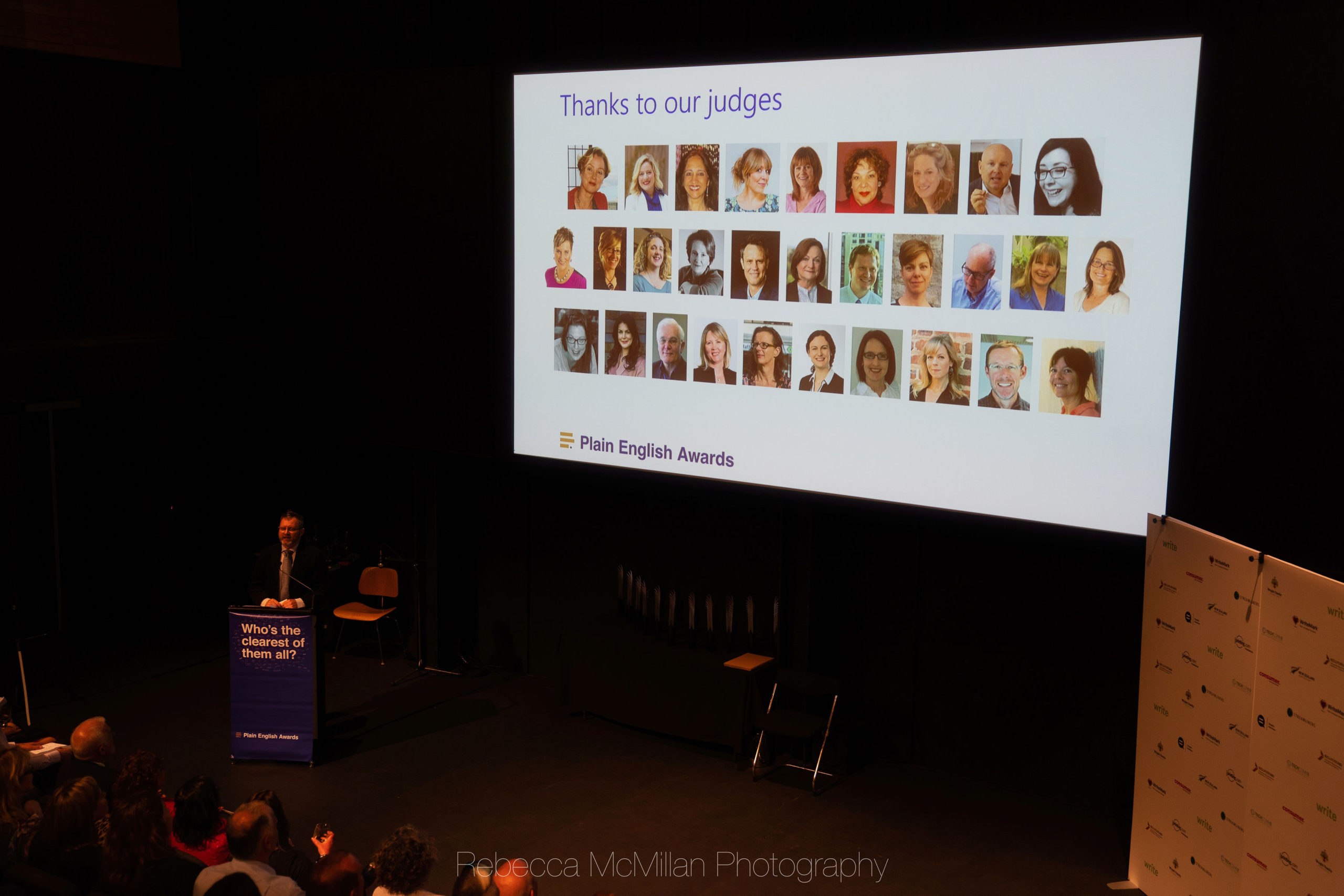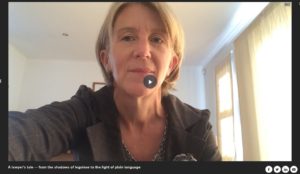
Good, better, best: it's over to the judges to decide | Photo by Canstock
Thanks to all who entered this year’s Awards! After a flurry of last-minute entries, we have handed everything over to our intrepid judging team. All 36 of them!
This year a third of the judges are from New Zealand and the rest are from the US, UK, Australia, and Europe. All are accomplished plain language experts and strong advocates for Ernest Gowers’ advice: ‘Be short, be simple, be human’.
How do our expert independent judges pick their winners? It’s a big job so we thought you’d like to know a bit more about it.
First up, shortlisting
First, our judges read over each entry, carefully checking against the plain language criteria. Then they vote on their shortlist. This all happens independently in the Submittable system, which allows ‘thumbs-up, thumbs-down’ voting.
Next, reviewing
Next, judges do a detailed review of all entries, writing comments for each of the assessment criteria. Each panel works hard to make sure feedback is balanced, fair, and helpful. The goal at this stage is to recognise and affirm great writing and to help entrants do even better by making suggestions and giving examples for improvement.
We know that entrants really value the expert feedback. For some, it’s the best aspect of entering! Submittable calculates scores for each of the criteria and averages them across the judging panel to help the panel agree on a few contenders for the category awards.
Last, picking the finalists and winners
Now the judges deliberate as a team to pick their finalists and winners — quite a logistics exercise with judges living all over the globe! The deliberation stage can involve lots of lively debate, especially when many entries are of a very high standard!
When judges need to choose between two excellent entries, it usually comes down to impact. Entries where the work has made the greatest positive impact will usually triumph.
When all is agreed, lead judges review the written comments for all shortlisted entries to make extra sure that the comments are clear and helpful.
So if you entered this year, good luck! Regardless of the outcome, you’ve done a good thing and your users are thanking you! (A trophy is good too of course!)
How the judging process works
Judges for the 2022 Plain Language Awards
Lynda Harris August 16th, 2022
Posted In: 2022 Plain Language Awards, Judges, Shortlists
Tags: clear communication, judges, plain language, Plain Language Awards

A winning entry is in the bag if you meet the plain language criteria | Photo by Phu Dinh on Unsplash
Here’s some inside information for people thinking of entering the 2022 Plain Language Awards!
However, it’s no secret! The thing the judges are looking for and what excites them the most is to see a document or website that meets the plain language criteria to a very high standard.
How the judging process works
When they review the entries, the judges use Submittable — the same platform entrants use to submit their entries. Submittable enables the judges to record their feedback and rate the entries.
Read more about the judging process
Meet the judges for the 2022 Awards
Here are the broad ratings they use, starting from the highest rating and moving to the lowest.
Excellent — Thought-provoking and inspiring
Plain language principles are applied consistently and well. We discovered new ideas and strategies from this entry that we want to use in our own work. We want to tell other people about this entry and think readers and users will tell other people too. We can see the positive impact of this entry for the organisation or its customers.
Very good — Solid use of principles
Applies principles consistently and effectively. Changes we might make would fall into the polishing or
nit-picking category. They are unlikely to change the impact of the entry overall. This is a very strong example, but it didn’t inspire us to say ‘Wow! Look at this one!’
Good — Uses some plain language principles but misses subtleties
Mainly uses plain language principles but misses subtleties and opportunities. The entry may get the point across, but more focus on plain language principles could measurably improve it .
Fair — Inconsistent use of plain language principles
Uses some plain language principles, but misses other critical ones. May misapply or over-apply strategies. The authors would benefit from training and mentoring.
Poor — Poor or no use of principles
The poor use of plain language principles in this entry interferes with readers’ ability to understand and act on the information. If testing was done, it seems to have had little or no impact on the final version.
Read about the plain language criteria
Read about the user-testing criteria
Get your copy of the Write Plain Language Standard
More Trophy Tips
You’ll get lots of tips for bringing home a trophy if you read the judges comments and the media releases of previous winners and finalists.
Meet the 2021 winners and finalists
And read one of our earlier blog posts with some useful summaries here:
Trophy Tips: In the words of our judges
Anne-Marie Chisnall July 21st, 2022
Posted In: 2022 Plain Language Awards, Judges, Trophy Tips
Tags: 2022 Awards, impact, judging criteria, plain language standard, Trophy Tips, user-testing, Write Plain Language Standard

It’s time to celebrate! | Photo by Erwan Hesry on Unsplash
With preparations for our cyber-ceremony in full swing, you can now register your place to attend.
Register for the 2021 Plain English Awards ceremony
What you can look forward to at this year’s event
This year, for the first time, we’re running our celebrations online. While we’ll miss celebrating with people in person, our aim is to make this year’s event super special in its own way.
Our MC James Elliott is bound to delight
Now in his fifth year as MC of the Awards, lawyer and comedian James Elliott is a firm highlight at our ceremonies. James is back this year and guaranteed to entertain.
Find out more about James
Bring your supporters along — we can host more people online
With no limits to seat numbers, we’d love you to invite as many of your supporters to join you at the ceremony as possible. In the past, we’ve often had to limit spaces to 150 people — but that’s not a problem this year!
Our overseas entrants and supporters can easily join us
We’ve always extended an invitation to our ceremony to both our domestic and international supporters. However, often the overseas contingent isn’t able to make it. Happily (and time differences aside), that’s not a problem this year either!
We opened up entries to Australia for the first time this year
Read about our international panel of judges
Celebrate International Plain Language Week at the same time
Our Awards ceremony is right in the middle of International Plain Language Week. This gives you a readymade way to get involved in an international event that celebrates clarity.
So, don’t hang about — register your place at the 2021 Plain English Awards ceremony
Thanks again to our sponsors for their commitment to the (plain language) cause
We have an incredible line-up of sponsors this year. We’d like to thank them all for their support.
Read about this year’s sponsors
Melissa Wardell September 30th, 2021
Posted In: 2021 Awards ceremony, 2021 Plain English Awards, Australian clear communication awards, Awards ceremony, Communications, Finalists, Judges, People's Choice awards, Plain English Awards
Tags: 2021 Plain English Awards, Best Plain English Communication, clear communication, Finalists, judges, People's Choice, sponsors, winners

We’ve got lots to celebrate this year! | Photo by Sharon McCutcheon on Unsplash
Join us to celebrate our finalists and winners at our virtual Awards ceremony on Thursday, 14 October.
Our people are at the heart of what we do
Every year we have more people involved in the Awards than you’d expect. Many of these people are behind the scenes and plenty of them not in the limelight.
We love getting lots of our people together at the end of the Awards season to celebrate our finalists and winners, and promote the benefits of clear communication. Our Awards ceremony usually happens in person, but this year we need to think differently.
We’ll celebrate online for 2021
We knew from the outset that we’d need to think laterally when planning for our 2021 ceremony. So, in place of our in-person event, we’re going to run our Awards ceremony online.
We’ll miss being able to applaud our winners in person. At the same time, we’re excited about the many opportunities running an online ceremony gives us. We definitely won’t have a seat limit in 2021! And we’re going to run the ceremony at a time that works better for some our overseas judges and entrants. A flow-on benefit will be that you’ll be able to join during the day if you’re in New Zealand.
Our Awards ceremony is right in the middle of International Plain Language Week too. So you’ve got a readymade way to get involved in an international event that celebrates clarity.
So come along, grab your friends and supporters, and join us at our online Awards ceremony. We’ll have more details for you soon. For now, make sure you pencil in 11am until 1pm on Thursday, 14 October to celebrate with us!
Oh, and did we say that registrations will be free of charge this year? See you in October!
Who’s in the running for an award in 2021?
Huge thanks to our sponsors, who make the Plain English Awards possible
Melissa Wardell September 13th, 2021
Posted In: 2021 Plain English Awards, Awards ceremony, Communications, Finalists, Judges, People's Choice awards, Plain English Awards, Winners
Tags: 2021 finalists, 2021 Plain English Awards, 2021 winners, award winners, Awards ceremony, Best Plain English Communication, clear communication, Industry awards, online ceremony, People's Choice Awards, Plain English Awards

The next step in the Awards process is for our judges to do their jobs as they work towards deciding on this year’s finalists and winners | Photo by Bruno Nascimento on Unsplash
Entries for the 2021 Plain English Awards have now closed. But that doesn’t mean things have come to a standstill! Quite the opposite, in fact.
Our judges now get to work
We use an online platform called Submittable to accept entries. Submittable is also the place where our judges review each of these entries. Judging is broken down into several different phases as the judges work their way towards agreeing on a shortlist, finalists, and eventually a category winner.
Read about our fabulous judges
Read about the judging process
When you’ll next hear about entries
Good judging takes time. And given that our panels are made up of experts around the world as well as around New Zealand, our judges have the added ‘hurdle’ of communicating across different time zones.
Once our judges do come to agreement, we’ll publicise their shortlist decisions. Judges will then continue their deliberations and we’ll announce this year’s finalists on Thursday, 16 September. And the big announcement — this year’s Plain English Awards winners — will be made on Thursday, 14 October by our media partner, Newsroom.
To add to these broadcasts, our Awards ambassador, Shelly Davies, will talk about our winning entries on nationwide television in the days after the big announcement.
Thanks for your interest in the 2021 Plain English Awards. You’ll be hearing from us again soon. In the meantime, check out the videos in our gallery and share your plain language story!
How you can keep up-to-date
As always, we’ll continue to publish Awards updates in our website blog. You’ll also be able to keep up-to-date through our social media platforms and our newsletter.
Email newsletter@plainlanguageawards.org.nz to subscribe to our newsletter.
Follow us on LinkedIn
Follow us on Facebook
Follow us on Twitter
Melissa Wardell August 4th, 2021
Posted In: 2021 Plain English Awards, Communications, Finalists, Judges, Plain English Awards, Shortlists, Winners
Tags: 2021 finalists, 2021 Plain English Awards, 2021 shortlists, 2021 winners, clear communication, judges

Thanking our judges at an Awards ceremony | Photo by Rebecca McMillan Photography
We asked our judges for some insider advice and tips to pass on to people considering entering the Awards.
And as usual, they were more than happy to help out!
We asked our judges:
- what aspects of an entry makes them think ‘this one is a winner’
- what their top piece of advice was for someone entering the Awards
- what common missteps they see that quickly let them know an entry won’t be a finalist
- what they thought were the most notable features of winning entries from past Awards.
This type of entry is a winner
One judge liked entries that surprised them and surpassed their expectations.
Others said, ‘First impressions are crucial. For me, if the structure is helpful and logical, the language simple and clear, and the tone friendly and engaging, then the authors will definitely be in the running to be winners’.
‘The language will be the equivalent of plain speaking — ordinary, everyday language throughout the text. The document will do the job the writer describes to us.’
‘I think for me that’s when I can feel that the writer has put the effort in to realise that they are writing for a reader. It might not be perfect, but you can tell that they are thinking about the receiver of the message.’
‘It’s how the authors weigh and balance the various aspects and elements of the communication — the audience and its needs, the situation and its urgency or characteristics, the political charge of the situation and people’s reaction, and how all of that has an impact on the message, tone, word choice, sentence construction, images — and when they tell me that they have talked to the intended audience, instead of just assuming they got it right. When all of these things are cohesive, I know I have a winner.’
‘Simplicity and clear evidence of designing the information for the audience.’
Our judges’ top pieces of advice
Our judges want entrants to put themselves in their readers’ shoes. They want you to forget about yourself and your message. Just ‘focus on your readers’, one said, and we agree. Your audience is, after all, what really matters.
Always put yourself in your readers’ shoes. You wouldn’t want to wade through dense, long-winded, jargon-filled reports. Neither do your readers!
Another common theme from our judges was:
Keep it simple!
Here are some other top tips from our judges.
- Don’t get in your own way.
- Leave your ego at the door.
- Brevity is the currency of good comms.
- Think outside of the box, talk to talk to your customers, ask them what they want and need, get to know them. And … surprise yourself!
- Avoid bureaucratic language, particularly impersonal, passive, or pompous sentences.
- Keep it short, sweet, and simple! (No one wants to read lots on a screen.)
- Make a human connection. Show that your piece reaches its audience and has results. Show that every decision was carefully made based on evidence, not assumptions. And even better, try to show documented results — fewer phone calls, more returned surveys, bills paid sooner.
Common missteps judges see in entries
Here’s more on what to avoid, with some examples from the judges of missteps in entries that didn’t make the grade.
Lack of focus on the intended reader
- Too much focus on their own story
- Using their company name over and over again, instead of using ‘us’ and ‘you’
- Text that suggested that the writer wanted the message or the organisation to seem important
Unclear purpose
- A lack of attention to the purpose of the entry. ‘With no ‘care’, probably no need to share…’
- Failing to talk about the goal of your piece in terms of what you want your audience to be able to do with the information
Language-related problems
- Using unfamiliar words in place of everyday words that most people will easily understand
- Too many words, repetition
- Vague language, jargon, or management clichés
Lack of testing or evaluation
- Not being able to show that you tested your piece with your intended audience, no matter how limited the testing
- Not being able to show how you used feedback to improve the document or website
Stronger editing or design needed
- Clumsiness in the writing
- Too much text and not enough white space
- Not being able to explain why you made a choice about design or word choice based on your intended audience.
- Overwriting — including information that just dilutes the purpose of the document — and a lack of tailoring
The most notable feature of past winning entries was putting the reader first
Judges all agreed that putting the reader first was the way to a winning entry. ‘Clarity and consideration of the audience’, said one judge.
Winning documents were thoughtfully and helpfully laid out, using clear and simple language, and in an engaging tone that inspired trust.
‘They all really moved into the heads of their readers’, one judge said. ‘What questions do they have? How can we answer those questions as clearly as possible? How can design help us? What tone of voice is needed?’
‘We have been unanimous in selecting entries that showed unusual skill, such as explaining bowel cancer with sensitivity and clarity. Others have explained complex topics in everyday language.’
‘I’ve only judged the Best Plain English Sentence Transformation before … ‘short and active’ were the two main ingredients!’
‘One of the most memorable entries I judged several years ago was a newsletter updating residents about a major road closure that was going to last several months. The details were highly technical; the inconvenience was very high for anyone who used the road. But the newsletter used similes and metaphors to explain the technical aspects; for example, ‘We need to remove the equivalent of two soccer arenas of rock’. The writer used humour and truth and, as a result, built the trust of those who read it. It could have been a boring weekly update, but instead was an engaging read in terms that even a non-engineer — who didn’t live anywhere near there — could understand. That was understanding the audience and the situation and creating something more.’
‘A conversational tone. And good design (white space, colour, graphics, and so on).’
Some extra wisdom from our judges
Our judges wanted entrants to enjoy the process. ‘The standard has been rising over time’, one said. ‘Even to be chosen as a finalist is impressive and should go in your CV. The ability to write in plain English is in demand around the world.’
Another judge added, ‘It’s a great way to get valuable personal feedback on your writing! And you support plain language for everyone, no matter what someone’s abilities or background are. A great cause.’
‘No matter the outcome for your entry this year, read the comments of the judges with interest. For the most part, they will give you insights on how to approach about your next communication in a richer way.’
‘Plain English is not an add-on to good business writing — it is good business writing.’
Read Trophy Tips: Top tips from past winners
Find out more about this year’s judges
Watch videos by some of our judges in our gallery
Nicola Welby July 5th, 2021
Posted In: 2021 Plain English Awards, Communications, Judges, Plain English Awards, Trophy Tips
Tags: clear communication, clear thinking, clear writing, Finalists, improved writing, insights, plain English, Trophy Tips Seminar, winners

Our judges explain why they love to be involved in the Plain English Awards | Photo by Anastasia Zhenina on Unsplash
When we surveyed our judges for their top tips for a winning Awards entry, we got some lovely feedback about why they love to judge the Awards. We thought you might like to read it too. Perhaps some of the thoughts here will inspire you to celebrate plain language in your own organisations. And you might feel more inclined to demand clear communication from the organisations you encounter in your daily life.
Our judges love celebrating the use of plain English
Our judges felt that that the Plain English Awards are a fantastic way of encouraging and celebrating plain language in organisations.
As an ardent supporter of clear writing, I’m delighted to support them.
I think we should encourage people to excel in this area.
It’s fun, interesting, and it helps me with my mission: plain language as a human right, world wide!
I’ve been leading workshops on writing in five countries for more than 30 years. Judging the competition has always seemed a natural complement.
I love what Write does and stand for and I think any opportunity to promote plain language is a good opportunity.
It’s incredibly important to recognise good writing in and by organisations because they serve as an example to other organisations. In addition, New Zealand’s Plain English Awards have been a model and inspiration for other awards. I learn so much each time I judge.
To help out the plain English community. To keep in touch with the standard of writing across Aotearoa. And I suppose it’s good to have my name connected with the Awards. It’s certainly ‘on brand’!
From the shadows of legalese to the light of plain language
One of our judges, Jacqueline Stephenson (now a legal and business proofreader and plain language editor), shares some reflections on her years as a practising lawyer in the UK and New Zealand. Why did she write the way she did? And what does plain language in legal writing mean to her now?

Watch Jacqueline Stephenson’s video in our gallery
Awards founder Lynda Harris asks us all to demand clear communication
When Lynda Harris spoke at the Awards ceremony in 2018, she encouraged everyone present to demand clear communication, whether as a writer or a consumer.
So, believing what you do about the power of plain language, my question to you as both writer and consumer is ‘what action can you take that is bigger and bolder than before?’ How can you make your sense of care count?
Read Lynda’s inspiring words from that speech in our 2-part blog.
Care — the shortcut to plain language (part 1 of Lynda’s speech)
Care into action — rewrite or reject! (part 2 of Lynda’s speech)
Anne-Marie Chisnall July 5th, 2021
Posted In: 2021 Plain English Awards, Communications, Judges, Plain English Awards
Tags: clear communication, democracy, improved writing, insights, judges, leadership, plain English, Trophy Tips Seminar

We celebrate the generous support of our friends | Photo by Michael Dziedzic on Unsplash
One of the goals behind the Awards is to create a fairer society through improving people’s access to important communications. We acknowledge that this is an ambitious goal, but it’s one that moves a step closer to reality with every bit of support we get.
Among our supporters are our judges, who are all expert plain language specialists from around the world. They seem to come back each year even keener to to help us out again!
Adding to this wonderful level of support, our sponsors are all shining examples from the community of individuals and organisations committed to doing good.
Taking care of our printing needs
For 7 years now, the Wellington branch of printing.com has been one of our loyal sponsors. We feel fortunate to have their support. As their commitment to the Awards, printing.com covers all our printing needs for the Plain English Awards.
‘We see the Awards as being extremely important for supporting the government and business sectors as they continuously improve the way they communicate with the general public of New Zealand,’ says Nathan Jennings, business development manager at printing.com.
Thank you printing.com for your ongoing support. We couldn’t do it without you and all our other friends!
Read about printing.com and our other sponsors
Become a sponsor
Melissa Wardell May 20th, 2021
Posted In: Communications, Judges, Sponsors, Sponsorship
Tags: 2021 Plain English Awards, Industry awards, judges, Social good, sponsors, Sponsorship

The Champion Best Organisation leads the way for clear communication | Photo by Joshua Golde on Unsplash
We asked Lynda Harris, Awards founder and CE of our principal sponsor Write, why she’s so excited about the Champion categories in the Plain English Awards.
First of all, what do we mean when we talk about an organisation being a plain language champion?
The Plain English Champion category is my absolute favourite! The title implies two strong, equally important concepts connected with the word ‘champion’. Most obviously it means being ‘the winner’ — the best, the highest achiever, the standard-setter, the model for others to follow. And we applaud that!
But also embodied in the title of this category is the concept of being an advocate — being a champion for a cause. Plain language champions believe in the power of clarity and are proud to share their ideals with the world.
What are some of the characteristics that set a champion organisation apart?
An organisation that wins the Plain English Champion category has some stand-out features that truly do set it apart. A champion organisation has shown evidence of a deliberate, focused, consistent choice across the whole organisation to use plain language. This means they make their expectations clear from the top.
The chief executive and senior leaders of a champion organisation talk about the ‘why’ of plain language. They and their management teams encourage and support others to adopt a clear style of communicating throughout the organisation. They promote the connection between clarity and their organisation’s values. (How often have you seen a company say they’re customer-focused, and then tried to work your way through a difficult form or a jumbled website?)
Champion organisations celebrate the benefits of clear communication — things like greater job satisfaction and improved workplace culture, or better customer retention and a stronger reputation for their business.
What do you think the judges will be looking for in the winning portfolio?
Evidence is key to a winning portfolio! The judges will be looking for evidence of a wholehearted commitment to making plain language the norm across the whole organisation. That sounds easy but means a lot.
In a plain language organisation, you’ll find evidence that the CEO and senior team have drawn a line in the sand and set a strong expectation that:
- the reader rules! Everyone considers their reader in every communication, both internal and external
- staff learn what good looks like — everyone writes to an agreed plain language standard
- senior people show the way — the CEO and all managers set an example and model plain language
- staff have help — they can easily find helpful resources and champions who can help
- new documents are clear and reader-friendly
- feedback and measurable results support the change to plain language.
What this evidence all adds up to is that plain language is woven into the fabric of the organisation.
Why does Write sponsor this category?
You can see that everything about this category is dear to Write’s heart. Our mission is to help organisations and individuals get more value from their daily investment in business communication. When we fulfil our mission, we help build a fairer, more respectful society.
We see the Plain English Awards as another way we can promote the benefits of clear communication. And the Champion category is the one that allows us to celebrate other organisations that are on a similar path to us.
Read about the purpose of the Plain English Awards
Preparing your Champion entry
Read about the criteria and prizes for the Champion categories
Read about other clues that your organisation is a champion of clear communication
Anne-Marie Chisnall May 19th, 2021
Posted In: 2021 Plain English Awards, Judges, Plain English Champion
Tags: Champion, clear communication, leadership, plain language culture, recognition

Who’s the best and who’s the worst? Our panel of expert judges will make this year’s tough decisions. Image by Emily Morter. Unsplash licence.
Every year we’re honoured to enlist the support of plain language specialists from around New Zealand and the world to judge entries and nominations in our Awards. This year’s People’s Choice Awards are no different.
The exciting task of deciding who’s best
For our Best Communication category, we’re delighted to announce Deanna Lorianni, communications strategist from Virginia, USA, as panel chair. She’ll be joined by plain language specialists Emma Fossey in Scotland and Paula Shelton in Auckland. Together Deanna, Emma, and Paula will make the tough decision on which of your nominations is this year’s plain language superstar.
The difficult job of sorting bad from worse
For our Brainstrain category, we’re lucky enough to have the expert eye of two judges who’ve been part of this panel for several years: Simon Hertnon from Nakedize, who’ll be chairing the panel, and Sue Chetwin from Consumer — we’re excited to have them back! Simon and Sue will be joined by the equally valuable Paula van Gemen, plain language specialist from the Netherlands.
Read more about who’s on this year’s judging panels
Nicola Welby August 22nd, 2019
Posted In: 2019 People's Choice Awards, Judges
Tags: Best Plain English Communication, Brainstrain, clear thinking, clear writing, Industry awards, jargon, jargon-busting, PEA, People's Choice Awards, plain English, Plain English Awards, plain language, power of plain English, Worst Brainstrain, writing for the public












